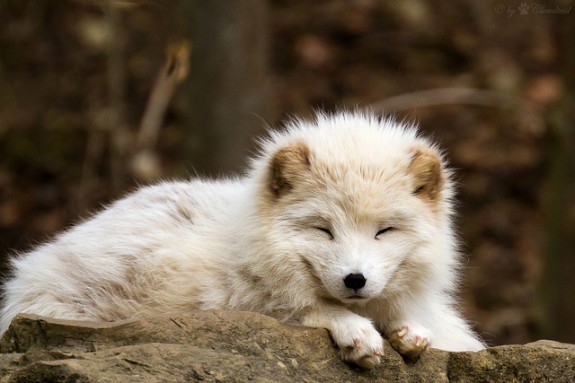December 21, 2012 2:48 pm
Most Arctic Animals Should Deal With Climate Change Just Fine

New research suggests that most Arctic mammals may actually benefit from climate change. Arctic specialists like the Arctic fox, however, may not do quite so well. Photo: Cloudtail
The world is warming, spurred by an amplified greenhouse effect. Thanks to polar amplification, high-latitude regions like the Arctic and subarctic are supposed to be disproportionately affected (indeed, over the past 30 years, some places have already warmed up by 3 degrees Fahrenheit). For this reason, the thinking goes, animals that live in the frigid northern reaches will be the ones most strongly affected—the poster animals for climate change.
That, it seems, may not quite be the case.
In a new study by Anouschka Hof, Roland Jansson and Christer Nilsson, all at Umeå University in Sweden, the trio of scientists found that, in most cases, global warming will actually give a boost to Arctic and subarctic life. Looking at 61 mammal species that currently inhabit high-latitude Europe the scientists found that, under climate conditions forecast for the year 2080, the majority of the species will see their ranges expand. They found that warming will actually bring in more species from further south, increasing biodiversity in the region. And, even in their worst-case scenario, they expect at most one species to go extinct: the Arctic fox. But, they suspect that this worst-case scenario is just that, a nightmare scenario unlikely to unfold. Hof and co.:
Our results indicate that, irrespective of the scenario, most species (43 out of 61) will expand and shift their ranges, mostly in a north-easterly direction, in response to expected climate change if we assume that species are able to colonize all areas that become climatically suitable. …We further predict that, irrespective of the scenario, the climate in (sub)arctic Europe will become suitable to ten more mammalian species. …Thus, mammalian species richness in (sub)arctic Europe is likely to increase substantially when full dispersal ability is assumed.
No comments:
Post a Comment